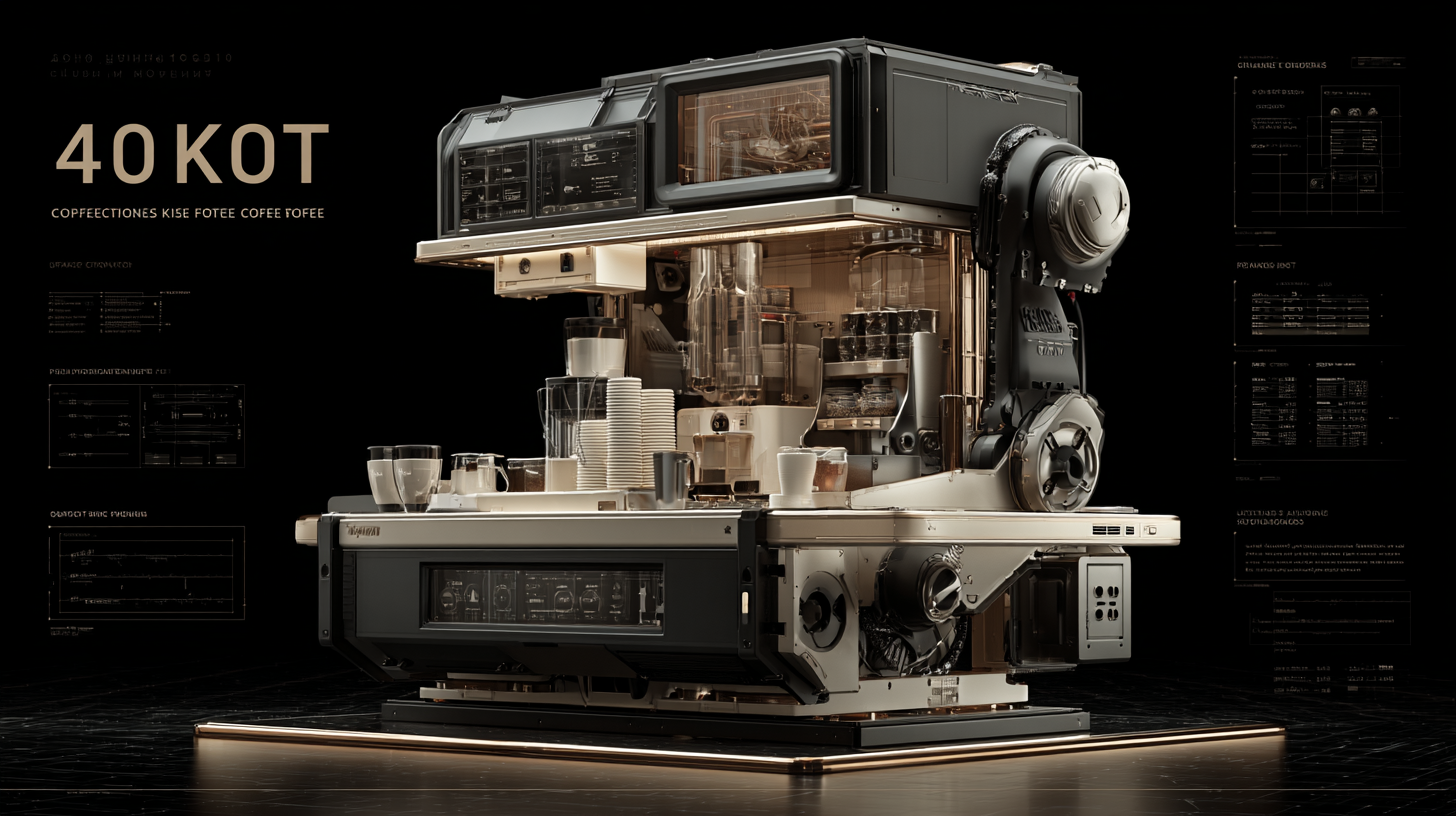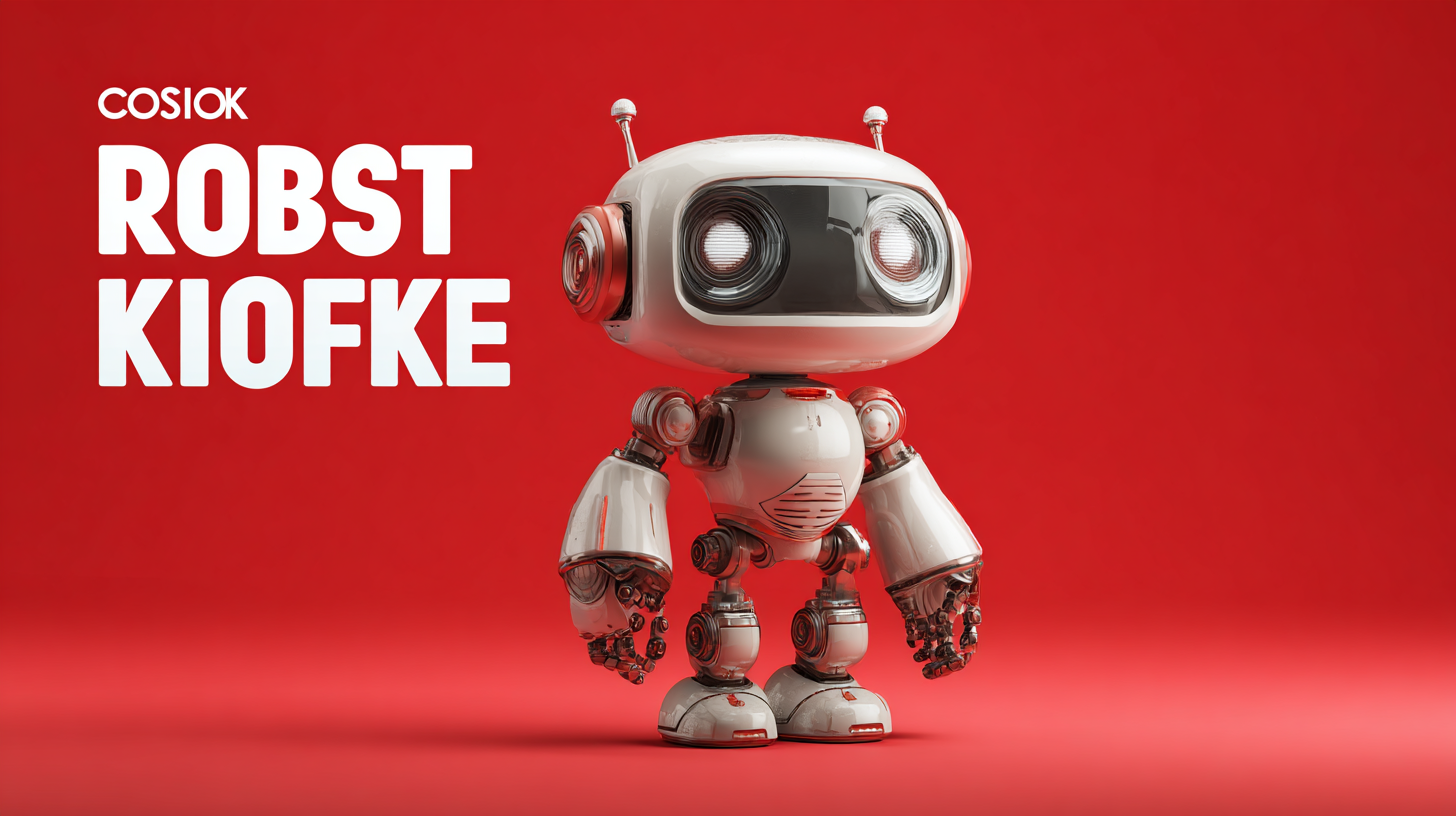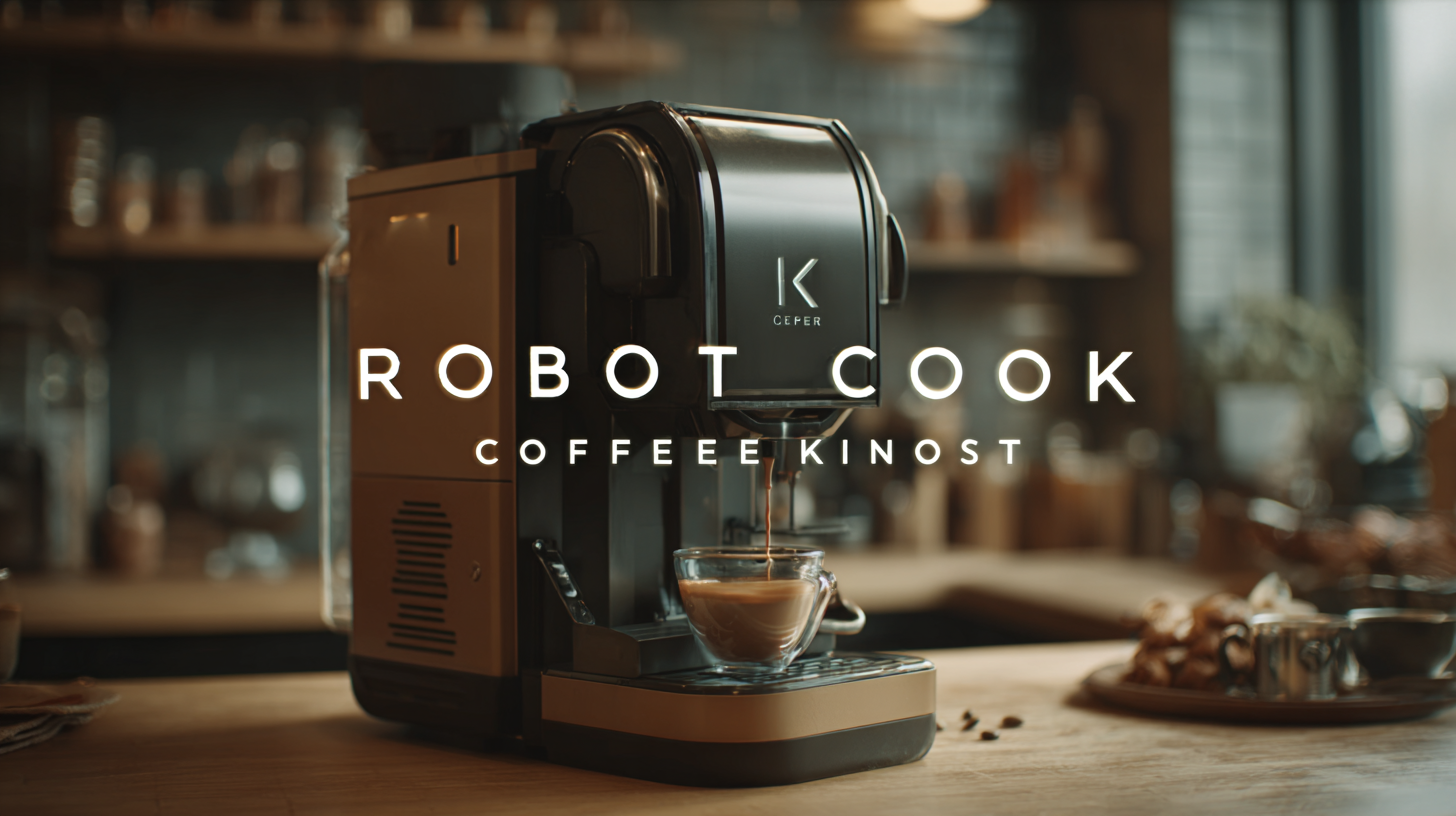Exploring the Technical Specifications of the Best Robot Coffee Kiosk for Your Business
As the coffee industry continues to evolve, the integration of technology has become paramount in enhancing customer experience and operational efficiency. One of the most innovative advancements in this sector is the rise of the robot coffee kiosk. According to a recent report by Statista, the global automated coffee market is projected to reach $1.2 billion by 2025, highlighting a growing trend towards automation in food service.
 These robotic kiosks not only streamline the coffee-making process but also offer consistency in quality while reducing labor costs. Furthermore, a survey by Nielsen indicates that 72% of consumers express interest in purchasing coffee from automated machines, underscoring the demand for such advanced solutions. In this blog, we will explore the technical specifications of the best robot coffee kiosks in the market today and outline the myriad benefits they bring to businesses looking to modernize their coffee service.
These robotic kiosks not only streamline the coffee-making process but also offer consistency in quality while reducing labor costs. Furthermore, a survey by Nielsen indicates that 72% of consumers express interest in purchasing coffee from automated machines, underscoring the demand for such advanced solutions. In this blog, we will explore the technical specifications of the best robot coffee kiosks in the market today and outline the myriad benefits they bring to businesses looking to modernize their coffee service.
Market Trends and Predictions for Automated Coffee Kiosks by 2025
As we look towards 2025, the automated coffee kiosk market is expected to witness remarkable growth, driven by advancements in technology and evolving consumer preferences. With more businesses seeking efficient solutions for coffee service, these kiosks are becoming integral in urban areas, office complexes, and high-traffic venues. Market analysts predict that integration with mobile payment systems and AI-driven personalization will enhance customer experiences, making it easier for operators to tailor offerings to local tastes and preferences.
Tip: When selecting a robot coffee kiosk for your business, prioritize models that offer seamless integration with existing payment solutions and provide data analytics capabilities. This ensures that you can not only streamline operations but also make informed decisions about menu offerings based on customer behavior.
Additionally, sustainability features are gaining traction; consumers are increasingly drawn to brands that prioritize environmentally friendly practices. Kiosks that utilize energy-efficient technologies and compostable materials will be in higher demand.
Tip: Stay ahead of market trends by investing in kiosks that focus on sustainability. This not only adheres to consumer values but also differentiates your brand in a crowded marketplace, ultimately driving customer loyalty and enhancing your business's reputation.

Key Technical Features to Look for in the Best Robot Coffee Kiosk
When considering investing in a robot coffee kiosk for your business, it's essential to understand the key technical features that enhance efficiency and customer satisfaction. One of the primary aspects to evaluate is the kiosk's brewing technology. Look for models that utilize advanced brewing techniques, such as precision temperature control and customizable brewing options. These features ensure that your customers enjoy consistently high-quality beverages.
Another critical feature is the kiosk's user interface. An intuitive touchscreen with easy navigation can significantly improve the customer experience. Make sure the interface supports multiple languages and offers personalization options, allowing customers to adjust their orders seamlessly. Additionally, integrating mobile payment solutions is a must-have in today’s digital age.
Tip: Always check for a kiosk that includes real-time analytics tools. These tools can help you monitor sales trends, inventory levels, and customer preferences, enabling you to make data-driven decisions to improve your service.
Lastly, consider connectivity options. The best robot coffee kiosks come equipped with Wi-Fi and cellular connectivity, allowing for remote management and updates. This means you can monitor operations and perform maintenance checks from anywhere, keeping your business running smoothly without constant on-site presence.

Cost-Benefit Analysis: Investing in Coffee Kiosks for Business Growth
Investing in a robotic coffee kiosk can significantly impact your business growth, especially in today’s fast-paced environment where consumers seek convenience without compromising on quality. A cost-benefit analysis reveals that while the initial investment may seem substantial, the long-term savings and revenue increase can be substantial. Robot coffee kiosks require less manpower, reducing labor costs while maintaining high consistency in product quality. This efficiency can cater to high foot traffic locations, providing quick service that meets customer demands, thus enhancing customer satisfaction and loyalty.
Moreover, robot coffee kiosks often include advanced technology that allows for customization and personalization, aligning perfectly with contemporary consumer preferences. Customers can order their favorite beverages with just a few taps, which not only speeds up the service but also creates a unique experience that draws them in. By reducing wait times and streamlining operations, businesses can significantly boost their sales, turning an initial investment into a sustainable revenue-generating asset. As trends continue to shift toward automation and technological integration, investing in coffee kiosks can position your business as a leader in the evolving market.
Exploring the Technical Specifications of the Best Robot Coffee Kiosk for Your Business - Cost-Benefit Analysis: Investing in Coffee Kiosks for Business Growth
| Feature | Specification | Cost (Approx.) | Estimated ROI (Years) | Monthly Maintenance Cost (Approx.) |
|---|---|---|---|---|
| Machine Type | Automatic Espresso Machine | $15,000 | 2 | $200 |
| Connectivity | Wi-Fi and Bluetooth | N/A | N/A | N/A |
| Drink Options | Espresso, Latte, Cappuccino, Drip Coffee | N/A | N/A | N/A |
| Space Requirement | 10 sq ft | N/A | N/A | N/A |
| Power Supply | 220V | N/A | N/A | N/A |
| Average Drink Cost | $3.50 | N/A | N/A | N/A |
| Daily Customer Volume | 100 cups | N/A | 1.5 | N/A |
Digital Innovations Transforming the Coffee Service Industry
The coffee service industry is experiencing a digital renaissance, fueled by innovations that enhance efficiency and customer experience. According to a report by IBISWorld, the coffee shop industry is expected to grow to $45.4 billion by 2024, propelled by advancements in technology. One of the most significant trends is the rise of automated coffee kiosks that integrate IoT capabilities and AI-driven machines. These kiosks not only make brewing coffee faster but also enable personalized customer interactions, allowing businesses to adapt their offerings based on consumer preferences.
Furthermore, data from Statista indicates that around 70% of consumers prefer contactless service options, particularly post-pandemic. This shift has led to the development of robotic coffee kiosks that utilize apps for ordering, payment, and even tracking customer loyalty, creating a seamless experience. As these digital solutions become more sophisticated, they not only reduce labor costs but also minimize human error, which, according to a study by Market Research Future, could lead to a 25% increase in operational efficiency for coffee retailers. In this evolving landscape, businesses that embrace these digital innovations will not only thrive but redefine the coffee service experience.
Coffee Sales Comparison: Robot Coffee Kiosk vs Traditional Coffee Shop
Practical Tips for Implementing a Successful Robot Coffee Kiosk Strategy
Implementing a successful robot coffee kiosk strategy involves a blend of technology, customer engagement, and streamlined operations. As businesses increasingly turn to automation, selecting a robot coffee kiosk with the right technical specifications is crucial. When evaluating kiosks, focus on their speed of service, quality of coffee, and user-friendly interface. Ensuring that the technology can integrate seamlessly with your existing systems is key to maintaining operational efficiency while enhancing the customer experience.
Moreover, creating a positive environment around your kiosk can significantly impact customer retention. Utilize marketing strategies that highlight the unique experience offered by a robotic barista, engaging customers through social media or local community events. Collecting feedback directly from users will help you fine-tune your offerings, making adjustments based on consumer preferences. With the right approach, your robot coffee kiosk can not only serve as an innovative service solution but also as a compelling marketing tool that drives foot traffic and boosts sales.
